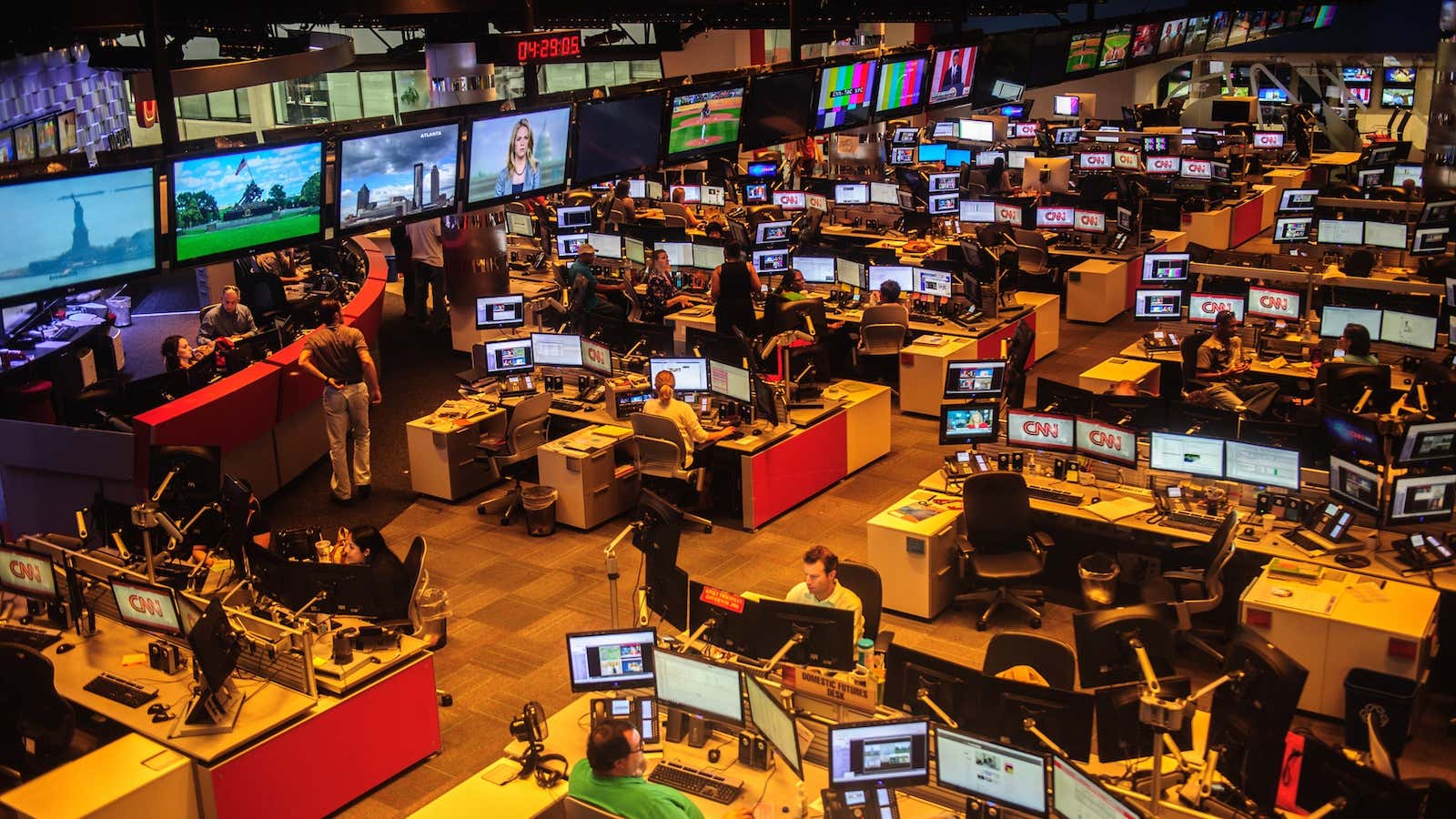Major media outlets in the United States are failing the American public, particularly when the time comes to cover the Middle East and North Africa. For the past few years, it has pretty much always been that time.
To read the headlines from major US news networks is to believe that the Middle East is trapped in an eternal cycle of violence, instability, and terrorism. Everyone is Arab and Muslim, oppression of women is ubiquitous, and Shias and Sunnis have always and will always hate each other. The reporting these headlines introduce may be a bit more nuanced, but not by much.
Like most parts of the world, countries in the Middle East and North Africa are unique and complex places with their own rich cultures and traditions. But, instead of reflecting these realities, American media has embraced the trite over the true.
The same voices—usually white and male—have repeated these same stereotypes again and again. Alternative narratives, especially from female and minority writers, are hard to come by in major outlets. Those of us who are social-media savvy can seek out analyses from racial and religious minorities, gender-queer writers, and Muslims speaking their own truth, but access to diverse media should not depend on Twitter skills.
Perhaps most disturbingly, many mainstream news platforms have betrayed journalism’s critical role in holding governments accountable for their actions. In the lead up to the 2003 invasion of Iraq, American media networks on both sides of the political aisle trumpeted the intervention, willfully spreading false information about the Iraqi government’s so-called stockpile of weapons of mass destruction and alleged involvement in the 9/11 attacks. Many of these same outlets have also regularly ignored or downplayed the troubling practices of US allies in the region, like Israel’s brutal bombing campaign against the Gaza Strip from Dec. 2008 to Jan. 2009 and Bahrain’s crackdown against peaceful protests in 2011.
These are not isolated journalistic failures. They are deeply rooted problems with the mainstream news industry and how it functions. In an interconnected world, this approach to covering news breeds one-dimensional thinking and misguided support for governmental decisions that can have devastating effects on many communities. Western interventions in Iraq, Afghanistan, and Libya (to name a few) are searing examples of the consequences of monolithic reporting. The destructive effects these interventions have had, both in the region and across the globe, are the ultimate indictment of this breed of journalism.
Fixing these problems requires a revolution—not in technology, but in philosophy. We need to rethink both how the news is covered and which voices should be part of that coverage.
Some media outlets, like Muftah.org, are trying to meet this challenge. Muftah was founded in May 2010 (today is its fifth anniversary) to push back against the troubling trends in mainstream reporting. Muftah began by providing English-speaking audiences with incisive analysis on Middle Eastern countries, which eschewed the Western focus on terrorism, oil, and Islamism; and highlighted the complex factors that shape and influence regional countries and populations. But, the Middle East and North Africa are not the only places for which news coverage is lacking, and, so, Muftah recently expanded its work to Central Asia and Eastern Europe.
From the start, Muftah has fostered debate by working with a large and eclectic group of writers that includes academics, practitioners, activists, and members of diaspora communities. It has provided a platform for people inside the regions it covers to speak for themselves, instead of having others talk on their behalf. Muftah has, for example, published a first-person narrative from a woman in Saudi Arabia about the daily injustices she experiences because of her gender; and also, from Sudanese political cartoonist Khalid Albaih, about a bizarre experience he had with Egyptian security as he tried to enter the country for a media workshop.
In the five years since its founding, Muftah has consistently flipped stereotypes, showcased the incredible vibrancy of the regions it covers, and reflected on the challenges they face. Its articles have included a profile on an art project that invited Moroccans to submit photos of things they love about their cities, a look at how Yemeni youth are using art to express their social and political demands, an examination of Russia’s cultural influence in Eastern Europe, and a photo essay on Iranians of African descent. An entire section of the magazine is dedicated to “Art & Culture in Pakistan and Afghanistan” and the Middle East’s LGBTQ communities. Muftah’s articles have also explored how women’s positions deteriorated in Iraq after the US invasion, the increasing crackdown on freedom of expression in Gulf states, corruption in Kazakhstan, and discrimination faced by non-Jewish African refugees in Israel. Moving forward, Muftah will continue extending its reach to parts of the globe that are ignored or misrepresented by mainstream news outlets.
The media can make the world better or worse. It can inform us, or exacerbate our ignorance. It can emphasize diversity and pluralism, or promote homogeneity. Muftah is working hard to be on the right side of the equation, by making space for voices rarely seen in the mainstream press. These voices are knowledgeable and critical, and provide readers with a variety of perspectives.
This is the type of news that breeds an informed American public, and a better world for everyone.
Quartz will publish select articles from Muftah to bring readers additional coverage on Middle East and North Africa, starting in June 2015.
